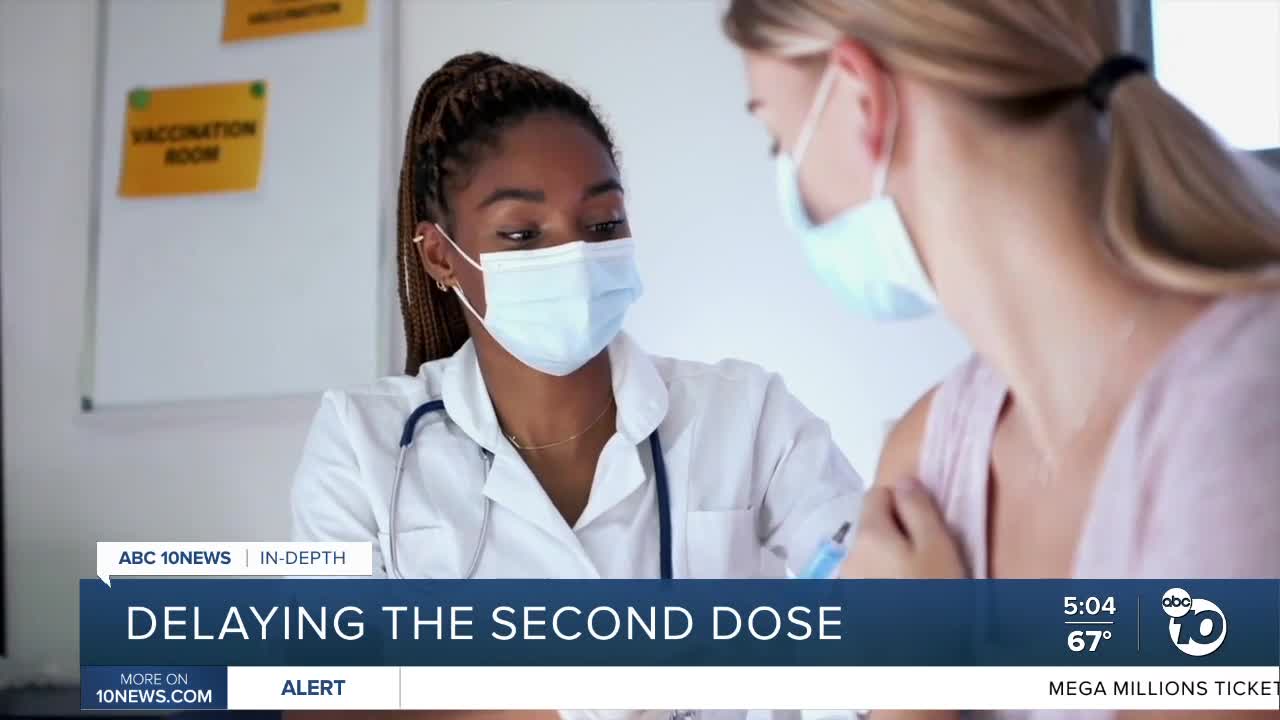SAN DIEGO (KGTV) -- A new study suggests delaying the second dose of the Pfizer COVID-19 vaccine improves an important part of the immune response in older recipients.
U.K. researchers measured immune cells in a group of people aged 80 and up. They found that waiting 12 weeks for the second jab generated 3.5 times more virus-fighting antibodies than the standard 3-week interval.
Scientists have observed this pattern in other experimental vaccines, said Dr. Shane Crotty, a professor at the La Jolla Institute for Immunology.
“After that first immunization, your immune system is essentially still learning about the target for quite a while,” he said. “It’s not done learning at three weeks, and it’s not done learning at five weeks.”
By “learning,” he means the white blood cells that make antibodies, called B cells, actually evolve when they encounter a pathogen, and that takes time.
“If you come back with a second immunization later, you take more advantage of that learning,” he said.
The results are similar to previously published data on the AstraZeneca vaccine. Adults who got their second dose after 12 weeks produced twice as many antibodies as those who got the second immunization within six weeks.
According to the study in The Lancet, that vaccine’s efficacy also improved dramatically with the longer delay, from 55.1 percent to 81.3 percent.
The new results on the Pfizer vaccine have been hailed as validation for countries like the UK, Canada and France which delayed the administration of second doses in a bid to vaccinate more people. But Dr. Crotty said the study revealed important caveats that make changes to the U.S. vaccine schedule unlikely.
“One part of the immune response is better but a different part of the immune response is worse,” he said.
People who got their second dose after 12 weeks generated fewer T cells, a group of white bloods that play an important role in immune memory.
“High antibody titers are definitely good, but some of the ways you get those high antibody titers and you keep those high antibody titers is from the T cells helping the antibodies,” Dr. Crotty said.
In other words, the delay could result in immune protection that doesn't last as long. We won’t know for sure until we have data showing the impact six months out, Crotty said.
Unlike B cells which evolve, T cells either recognize a pathogen immediately or they don’t, Dr. Crotty said. And T cells seem to be more provoked by a shorter interval between doses, particularly in older people.
Older individuals tend to have a relatively weak T cell response to the COVID-19 vaccine under the standard 3-week interval, so an even weaker response caused by a dosing delay could be significant, he theorized.
Extending the gap between doses also means more time relying on the protection of just one shot. Several recent studies have revealed the first dose offers limited protection against variants, Crotty said.
“You actually do not have good antibody responses against the variants after one immunization,” he said.
For all those reasons, he thinks the U.S. should stick with the dosing recommendations that were studied in the large-scale clinical trials. But he said the new results should offer a level of reassurance to people who experienced a second dose delay.
“It's totally fine if you didn't get it at three weeks,” he said. But “definitely get the second dose.”





